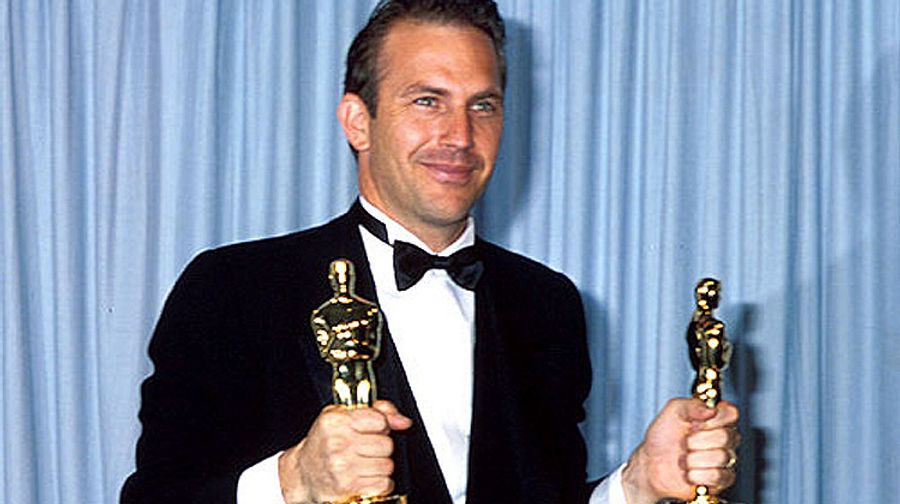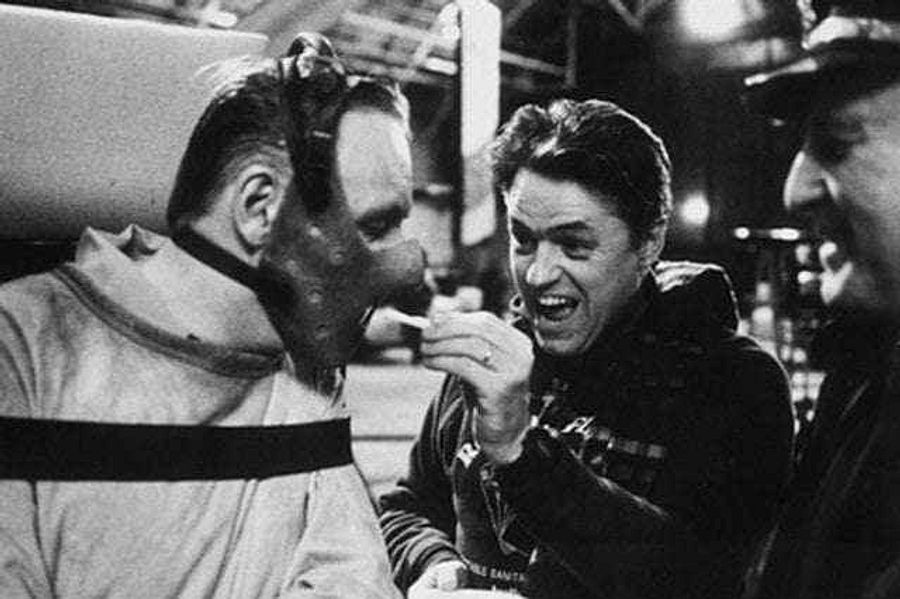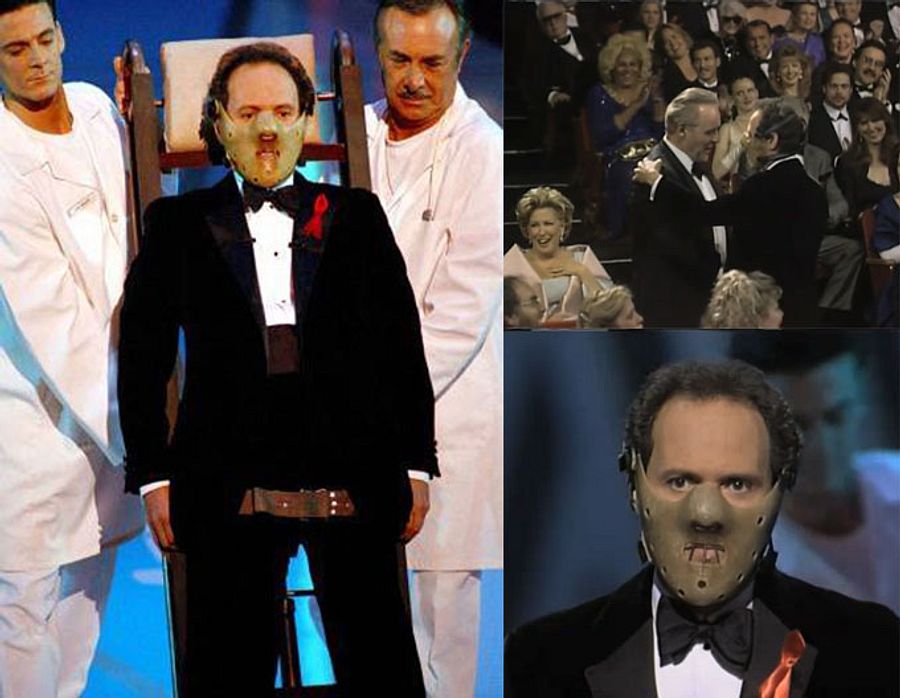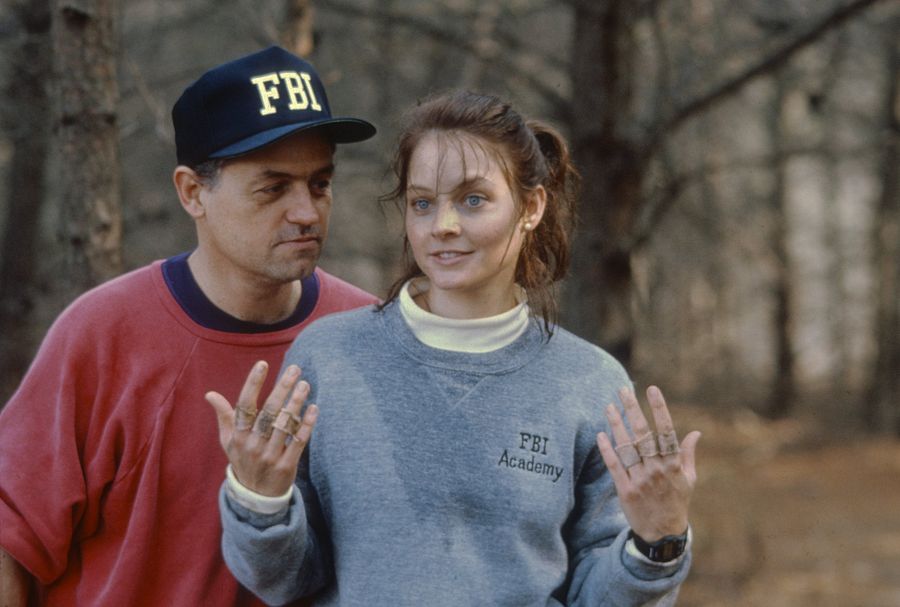We revisit 'The Silence Of The Lambs' sweeping the Oscars in 1992
Films with horror themes elements rarely do well at the Oscars – and it took ‘The Silence Of The Lambs’ to break that streak.
Horror films or blockbuster hits rarely dominate the Oscars, but in late February 1992 the planets briefly aligned to let a horror blockbuster win “The Big 5” at the Oscars.
“The Big 5” at the Oscars are Best Picture, Best Director, Best Actor, Best Actress, and one of the Screenplay categories.
Only two other films have pulled off the feat – “It Happened One Night” in 1934 and ‘One Flew Over The Cuckoo’s Nest’ in 1976.
Director Jonathan Demme was the director of quirky, off-beat and hip comedies and was suddenly elevated to the higher tiers of Hollywood.
Jodie Foster won her second Oscar in 3 years, confirming her as one of cinema’s finest leading ladies.
And for star Anthony Hopkins, it made a venerable Welsh actor a household name.
For such a dark and disturbing film to not only become a blockbuster hit but also receive the highest awards in the film industry is the rare occurrence that only happens once in a generation.
30 years later, we’re taking a look at how the historic sweep changed the film landscape forever.
Booksmart
As with all things, it starts with Michael Mann.
The Chicago auteur adapted Thomas Harris’ novel ‘Manhunter’ in 1986, and like most Mann films, it failed to find an audience at the box office only to become a beloved cult hit many years later.
Based on the 1981 novel ‘Red Dragon’ by Thomas Harris, the film was a more explicit cat-and-mouse game full of brooding shots of men staring into the distance.
It was a Michael Mann film through and through, and as mentioned, Mann’s films were never meant for the mainstream.
Thomas Harris wrote a sequel to the book in 1988, titled ‘Silence Of The Lambs’, and the rights to the book were quickly snapped up by Orion Picture and Gene Hackman.
Hackman was originally attached to produce and possibly direct the film, but after seeing a clip of himself in the film ‘Mississippi Burning’, he was backtracked on the decision and objected to the violent content of the film.
Paul Verhoeven, who had recently directed the hit ‘Robocop’ film for Orion was approached to direct but turned it down, with the Dutch provocateur believing there wasn’t an audience for such a dark, violent film.
Jonathan Demme, the director who represented a progressive, humanist force in American cinema with films such as ‘Something Wild’ ‘Melvin and Howard’ and the Talking Heads concert film ‘Stop Making Sense’, was drafted in to direct the film for Orion.
Orion Pictures were a studio that was a part of MGM, and produced Oscar-winning films such as ‘Amadeus’ and ‘Platoon’, the Best Picture winners of 1984 and 1986 respectively.
For Orion to pick up the film was a sign of intent – they saw the potential of ‘Silence Of The Lambs’ as a blockbuster hit with awards potential.
Mere weeks before ‘The Silence Of The Lambs’ hit cinema screens, another Orion film won Best Picture at the Oscars – ‘Dances With Wolves.’

With 3 Best Picture winners under its belt in less than a decade, Orion were the studio to beat.
The studio was in the process of going bankrupt by the time producers Kenneth Utt, Edward Saxon and Ron Bozman were accepting the award for Best Picture in 1992, the studio was about to go bankrupt.
‘Silence Of The Lambs’ was released on Valentine’s Day in 1992, a choice by Demme.
“It was my idea to release that film on Valentine’s Day. There was no talk about Oscars, and Orion now was headed toward Chapter 11 bankruptcy," the director said.
“There was tremendous excitement at Orion about this picture and its box office potential, but there were increasing concerns about loss of control.”
“This beautiful, amazing company was slowly going under, even as its biggest hit was flourishing at the box office,” he added.
“A census taker once tried to test me..”
Way before the film began an unlikely 13-month run to the Oscars, the film needed to be cast.
Gene Hackman was interested in playing FBI director Jack Crawford, and not as reported, the role of Hannibal Lecter.
The role of Hannibal Lecter was offered to the who’s-who of Hollywood talent, with everyone from Dustin Hoffman, Sean Connery, Jack Nicholson, Robert DeNiro, Morgan Freeman, Jeremy Irons and John Lithgow considered for the role of the iconic villain.
Anthony Hopkins, a Welsh actor well into his 50s and best known for his role in ‘The Elephant Man’, was the actor chosen to play what was to become of the most famous characters in screen history.

Casting FBI rookie Clarice Starling proved just as tricky.
Once again, a wide net was cast across Hollywood, with the early favourite being Michelle Pfeiffer.
Pfeiffer had previously worked with Demme in his previous film, 1988’s comedy ‘Married To The Mob’, and by all accounts was the actress who came closest to playing the role of Clarice Starling.
There are two conflicting narratives as to why she turned down the role, with one school of thought being Orion weren’t willing to pay the star her requested $2 million dollar salary, while another story reports that the role was offered to her but ultimately turned the film down due to the dark subject matter.
Per Demme, over 300 actresses auditioned for the role, with Meg Ryan, Laura Dern and Nicole Kidman among the big-name stars who auditioned for the role, with Jodie Foster ultimately cast.
It would be redundant to recap the plot of the film at this stage, but here’s a brief rundown.
A young FBI agent is tasked with finding a vicious serial killer and enlists the help of another serial killer to help track them down.
Face-eating ensures, there’s a great sequence set in a dark basement set to a deep cut by The Fall, “I’m having an old friend for dinner,” credits roll, A Luta Continua.
What happens after the credits roll is the most extraordinary part of the story.
“And The Oscar Goes To…”
Prior to his passing in 2017, Jonathan Demme gave an interview with Deadline about the 25-year anniversary of the films Oscar win.
Demme had a reputation in Hollywood as an actor’s director - he had directed Mary Steenburgen to an Oscar for ‘Melvin and Howard’ and secured nominations for his actors in ‘Swing Shift and ‘Married To The Mob’.
Until that point, mainstream success had eluded the filmmaker, but that all changed over the course of 1991.
Adjusted for inflation, ‘Silence Of The Lambs’ made $300 million dollars at the American box office, and was a global hit.
The film was released in the UK and Ireland in the summer of 1991, and became one of the years’ biggest hits in the process.
'The Silence Of The Lambs' ended the year at number 3 as the biggest film at the UK and Irish box office, ahead of other blockbusters such as 'Dances With Wolves', 'The Commitments', 'Sleeping With The Enemy', and 'Kindergarten Cop'.
A year after the film's release, the film was at the forefront of the Oscar season, and Demme’s fortune had changed.
The director found himself nominated against that year’s favourite, Oliver Stone for ‘JFK’, Ridley Scott for ‘Thelma and Louise’, wunderkind John Singleton for ‘Boyz N The Hood’, and Barry Levinson for ‘Bugsy’.
Hopkins was up against a tag-team of stars including Warren Beatty, Robert De Niro, Robin Williams and Nick Nolte in Best Actor.
Previous winner Jodie Foster was paired against the ‘Thelma and Louise’ duo Geena Davis and Susan Sarandon, while Laura Dern and Bette Midler served as her other competition.
‘Silence Of The Lambs’ had 7 nominations going into the night, with Tak Fujimoto’s cinematography and Howard Shore’s haunting score bizarrely overlooked by the academy.
Host Billy Crystal was wheeled onto the stage in a gurney and facemask akin to Hannibal Lecter.
It was a good omen for the evening to come.

‘JFK’ was the big favourite heading into Oscar night, with Oliver Stone’s feverish 3-hour conspiracy-theory-as-cinema blockbuster picking up 10 nominations.
The film picked up 2 awards in Cinematography and Editing, but that’s where Stone’s film peaked.
In the 7 categories ‘Silence Of The Lambs’ was nominated in, the film won 5.
The only categories it missed out in were Best Sound and Best Editing.
Recalling his memories of Oscar night, Demme wasn’t terribly confident.
“We knew how great Tony, and Jodie, and everybody was, but you just don’t think in those terms because, at the end of the day, it is a thriller."
"It has this young woman trying to save another young woman, but it is a thriller; it doesn’t seem like an Oscar movie,” the director said in 2017.
In a 30-year retrospective piece published in Vanity Fair last year, Mike Medavoy, co-founder of Orion Pictures, recalls his summation of the films Oscar chances.
“I knew it the moment I saw the first cut. I knew it was there. Usually, you can tell. I remember the first time I saw a cut of 'Platoon, or Cuckoo’s Nest."
"You go, ‘Wow, we got something special.’ You don’t go, "it’s gonna win the Academy Award,’ because if you do that, then you’re really an idiot.”
The film’s 5 Oscar wins is as shocking, but deserving an Oscar sweep as the ‘Parasite’ wins in 2020 or the ‘No Country For Old Men’ dominance of 2008.
Sometimes, the very best film of any given year rises to the top.
Crime Pays
The heroes of our story, Demme, Hopkins, and Foster only rose further after the win.
Demme went on to secure an Oscar for star Tom Hanks for ‘Philadelphia’ in 1993, regarded as the first major Hollywood film to tackle the AIDS pandemic.
Some have argued that ‘Philadelphia’ was the director aiming to right the wrongs created by ‘Silence Of The Lambs’
‘Silence Of The Lambs’ has a complicated legacy in the LGBTQ+ community owing to the portrayal of Buffalo Bill.
In 2021, Vox writer Aja Romano wrote about the film’s cultural legacy.
Romano noted that the film had a profound impact “on just about every aspect of pop culture, but it has also profoundly impacted the trans community, though decidedly not for the better."
The portrayal of Buffalo Bill was a point of contention for those within the LGBTQ+ community at the time, and Romano noted “for years, director Jonathan Demme found himself both justifying and apologising for the film’s portrayal of the character, acknowledging that while the serial killer wasn’t intended to be trans, Demme had failed to get that point across to audiences.”
For a director that prided himself on being inclusive and progressive, the portrayal of Buffalo Bill was a sore point for the director.
Romano’s piece notes that “in Demme’s defence ‘Silence of the Lambs’ explicitly tries to distance Buffalo Bill’s behaviour from transgender identity.”
“Lecter observes that Bill isn’t transgender, and Starling reminds the audience that there’s no link between transgender identity and violence. The film overtly tries to separate its villain from the trans community — in stark contrast to many of its predecessors in the horror genre,” they wrote.
Plenty of trans voices have given their two cents on the film over the years: we'd recommend the episode of 'Blank Check With Griffin and David' where guest Emily St. James discusses the film from a trans perspective.
Demme admitted to his mistakes, saying in 2014 that the response "was a wake-up call to me, as a filmmaker and a person."
Anthony Hopkins added another Oscar to his mantlepiece last year for his role in ‘The Father’, with the Welshman firmly established as one of the very best actors to ever step in front of a camera.
With 2 Oscars won by age 30, Foster took the clout and leverage that came with it to take roles in big-budget films such as ‘Contact’ and forge a career as a director of both film and television.

The success of ‘Silence Of The Lambs’ also revealed that there was a captive audience for true crime or crime-driven stories.
In the cultural climate of 2022, the culture at large is fascinated with retellings or dramatisations of famous crimes.
There is an entire cottage industry within the podcasting sphere dedicated to true crime, while crime-themed television shows and films regularly make appearances on the front page of Netflix.
‘Silence Of The Lambs’ wasn’t the first film to portray crime, but it’s unlikely mainstream crossover appeal penetrated the culture in a way no film had done before.
The 1990’s blessed us with great crime thrillers, from the films of David Fincher, the Ashley Judd legal thriller sub-genre, the likes of ‘Primal Fear’ and ‘The Usual Suspects’, and it’s unlikely those films would have even gotten the green light from studio heads without ‘Silence Of The Lambs’ rewriting the rulebook.
Even on the small screen, the likes of ‘The X-Files’ and ‘Buffy The Vampire Slayer’ have traces of ‘Silence In The Lambs’ in them.
The exploration of the horror mixed with the everyday mundane is something ‘Silence Of The Lambs’ nails, and ‘The X-Files’ ran for 9 seasons based on that premise.
30 years later, the film is still as fresh, profound, scary, and yes, as bloody brilliant as you remember it being.

